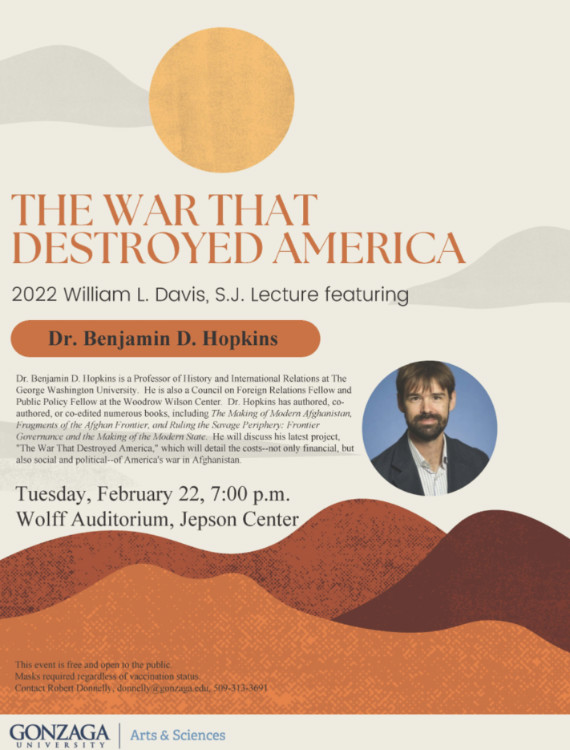Past Event Highlight:
The Symposium on the Past, Present & Future of Chicano/a/x Studies Recordings
The symposium, held March 2, 2024, brought together scholars, 51łÔąĎs, and community members for conversations related to Chicano/a History and Chicano/a Studies in honor of the work and legacy of Dr. Deena González. Participants reflected on the geneses of the fields, considered the state of these disciplines today and imagined a trajectory for the future.
Featuring scholars Antonia Castañeda, Alicia Gaspar de Alba, Fernando Guerra, Ramón Gutiérrez, L Heidenreich, Susan Johnson, Emma Pérez, and Yvette Saavedra
Watch the session recordings:
Session 1:Session 2:
Session 3:
William L. Davis, S.J. Lecture:
2023-2024 Events
Africa and the Olympics: Winning away from the Podium," a public talk with historian Todd Cleveland
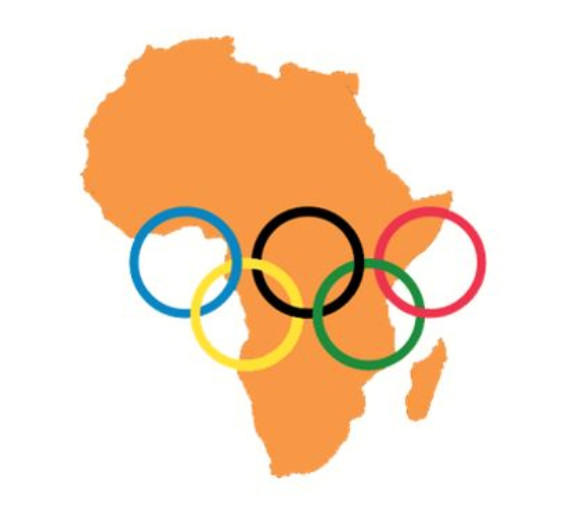
Date: March 18, 2024
Location: Bollier Center, Room 120
Sponsored by the History Department and the William L. Davis, S. J. Lecture.
Symposium on The Past, Present, and Future of Chicano/a Studies: An Inland NW Summit in Honor of Dr. Deena González

Date: March 2, 2024
Location: Hemmingson Auditorium, Room 004
Visit soon for event recordings.
Symposium schedule:
1 pm: The Past of Chicano/a History: Reflections on the Origins of the Field
3 pm: The Present of Chicano/a History: Students Making History
4:15 p.m: The Future of Chicano/a History: Where do we go from here?
7:00 pm: William L. Davis, S.J. Lecture (details below)
Featuring scholars:
Antonia Castañeda, Alicia Gaspar de Alba, Fernando Guerra, Ramón Gutiérrez, L Heidenreich, Susan Johnson, Emma Pérez, and Yvette Saavedra
Followed by the 2024 William L. Davis, S.J. Lecture:
7:00 pm: "The Women in My Life" given by Dr. Deena González
The Gonzaga History Department’s annual William L. Davis, S.J. Lecture has for over 50 years featured world renowned scholars and intellectuals who have provided significant conversations about timely topics. These open discussions have enriched our campus and the greater Spokane community. The year, in honor of her work as a founder of Chicano/a Studies, Dr. Deena González will speak on “The Women in My Life.” Dr. González was one of many second-generation feminist scholars who first tackled the difficult work of exploring archives and telling stories through the eyes of a Chicana lived experience. She is completing a book on one of the women’s stories she will examine in this year’s lecture.
Questions: Contact ostendorf@gonzaga.edu2022-2023 Events
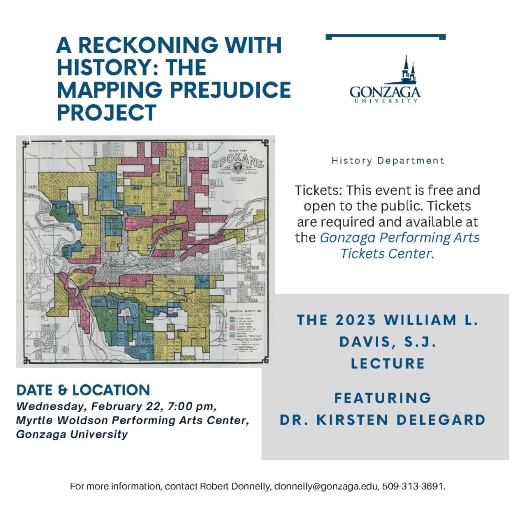
A Reckoning with History: The Mapping Prejudice Project
Dr. Kirsten Delegard is a historian at the University of Minnesota. Her presentation will be followed by a panel discussion on racially restrictive housing covenants and policies. Panelists include Dr. Larry Cebula ( EWU), Logan Camporeale ( Spokane’s City Preservation Office), Jillisa Winkler ( The Carl Maxey Center), and Jennyfer Mesa ( Latinos en Spokane). Dr. Veta Schlimgen ( Gonzaga University) will serve as moderator.
The War That Destroyed America
Dr. Benjamin Hopkins, Professor of History and International Relations at The George Washington University, discussed his latest project, The War That Destroyed America, which detailed the costs—not only financial, but also social and political—of America's war in Afghanistan.
Dr. Hopkins is a Council on Foreign Relations Fellow and Public Policy Fellow at the Woodrow Wilson Center, and has authored, co-authored, or co-edited numerous books, including The Making of Modern Afghanistan, Fragments of the Afghan Frontier, and Ruling the Savage Periphery: Frontier Governance and the Making of the Modern State.
2019-2020 Events
Lecture: Operation Noah: Conservation, Development, and Colonialism on the Zambezi
Dr. Jeff Schauer
September 23th, 2019
Wolff Auditorium, Jepson Center
In 1959, conservationists launched "Operation Noah" to save animals threatened by the construction of a dam on the Zambezi River in central Africa. However, the simple narrative of good conservationists rescuing animals from dangerous development projects masked a complex picture shaped by the colonial politics, international interests, and racial inequalities that defined conservation in twentieth century Africa.
Support provided by the William L. Davis, S.J. Lecture Fund, the History Department, and Environmental Studies.
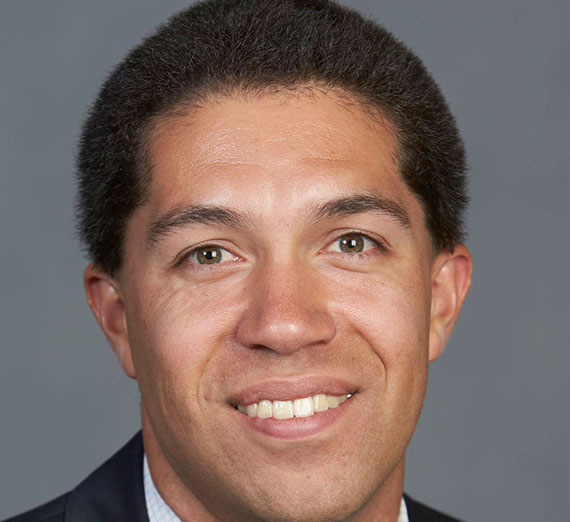
Dr. Jeff Schauer is an Assistant Professor of History at the University of Nevada-Las Vegas. Dr. Schauer researches the history of the British empire in Africa, with a particular focus on wildlife conservation politics and the end of empire. His book, Between Empire and Nation in Twentieth Century Africa, was published in 2019 by Palgrave Macmillan.
Lecture: How the Road to Irish Freedom Passed Through Spokane
Éamon Ó Cúiv - De Valera’s American Tour of 1919
September 12th, 2019
Magnuson Theater, Gonzaga University
In November of 1919, Éamon de Valera visited Spokane, staying at the Davenport Hotel and giving a speech at City Hall.
One hundred years ago, Irish rebels began a political and military campaign to break Britain’s control of Ireland and to establish an independent Irish republic. Éamon de Valera was declared to be the president of this aspirational republic, and in June of 1919, he travelled to the United States on an eighteen-month tour. His purpose was to raise money in support of the campaign in Ireland, and to persuade the government of the United States to recognize the independent Irish republic. To commemorate the one-hundred-year anniversary of this event, Éamon Ó Cúiv, de Valera’s grandson and Teachta Dála (member of the Irish parliament) is giving a series of lectures to explore the significance of the tour and the role that the United States played in helping establish an independent Irish state.
For more information, contact:
Dr. Caoimhín De Barra
debarra@gonzaga.edu
(509) 313-5227
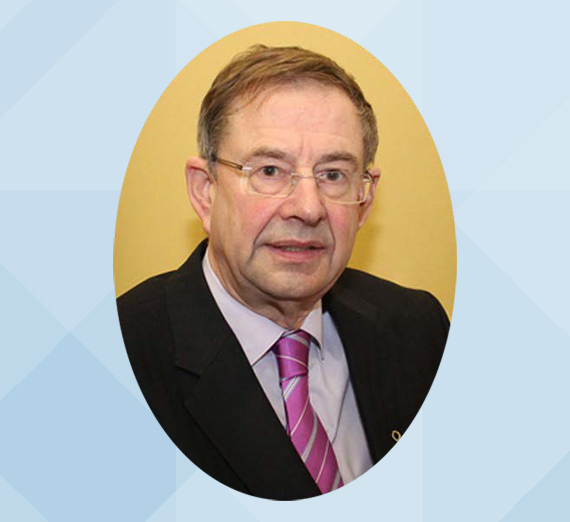
Éamon Ó Cúiv is a member of the Irish parliament (Dáil) having represented the constituency of Galway West since 1992. He served as a government minister with various portfolios from 1997 to 2011, including as minister for Community, Rural and Gaeltacht Affairs. From 2011 to 2012, Ó Cúiv was the deputy leader of Fianna Fáil, traditionally the largest political party in Ireland . Ó Cúiv is the grandson of Éamon de Valera, one of the founding fathers of the independent Irish state and the most significant political figure in twentieth century Ireland Ireland.
"Toward a Shared National Narrative"
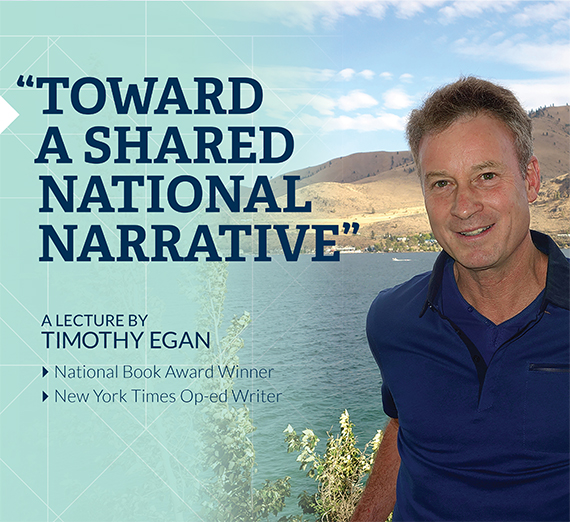
A lecture by Timothy Egan
Monday, March 25, 2019
Lecture 7:00 pm
Hemmingson ballroom
Gonzaga University
This presentation is free and open to the public.
The Sioux Indians had a saying: "A people without history are like wind on the buffalo grass." With the balkanization and polarization of our politics, you might think this country no longer has a set of shared historical values. I disagree, and would argue that the current unsettled time has solidified some of the core historical stories we tell about ourselves.
The 1918 Flu Pandemic in Comparison
May 1, 2020
In this webinar, Dr. Veta Schlimgen of Gonzaga University’s Department of History examines the 1918 flu pandemic and compares it to the COVID-19 pandemic of 2020.

